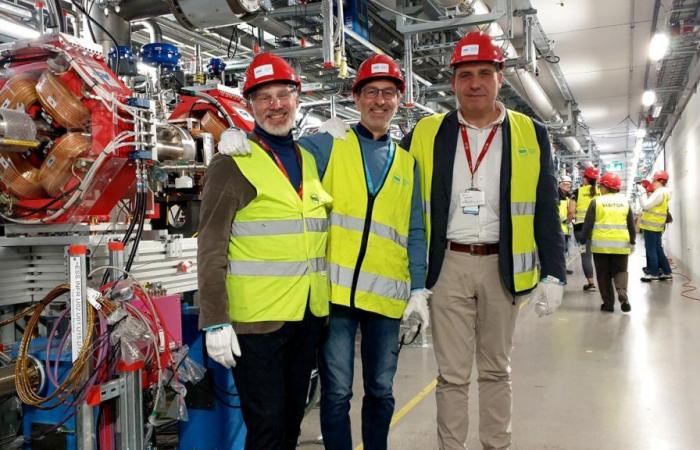The University of Perugia is leading a scientific project of international importance by coordinating the construction of the T-Rex neutron spectrometer at the European Spallation Source. This advanced research infrastructure, located in Lund, Sweden, is funded by 13 European countries including Italy, and promises to revolutionize the study of materials through neutron spectroscopy.
The T- Rex, Time-of-flight Reciprocal space EXplorer, is the result of a collaboration between the Applied Physics group of the Department of Physics and Geology of the UniPg and the Jülich Center for Neutron Scattering, JCNS, in Germany.
The project is funded with 24 million euros, of which 6 million from the Italian Ministry of Research. The management of the Italian funds is entrusted to the President Andrea Orecchini of the UniPg, with the support of the National Research Council (CNR) and the National Institute of Nuclear Physics.
The installation of the first T-REX components in Lund will begin in 2024, followed by the integration of the Italian and German components in the following two years. The complete construction of the beamline is planned by 2027, and from 2028 T-REX will be available to researchers across Europe.
T-Rex stands out for its efficiency and numerous scientific applications. This instrument will be fundamental for the development of intelligent biomaterials, such as proteins and enzymes integrated into artificial polymers for the creation of controlled-release drugs, and for the study of high-temperature superconductors for energy-efficient electric motors.
The project will also have a significant impact on the design of nanomaterials for environmental applications, such as water purification, pollution monitoring and humidity control in biomedical environments. T-REX will contribute to the development of polymer membranes for fuel cells and batteries with low environmental impact, as well as materials for sustainable energy management.
T-Rex’s contribution will be crucial in research on sponge-like nanomaterials for the storage and controlled release of hydrogen for clean engines and in the study of molecular magnets or magnetic nanostructures for quantum computers and advanced data storage devices. The ability to analyze materials with hydrogen atoms or magnetic properties makes the use of neutrons essential to obtain complementary data compared to traditional laboratory techniques.






